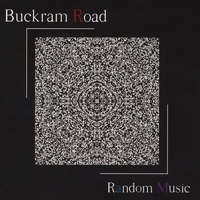
Last year around this time we started talking about a "modular Long Island" concept.
In point of fact, all of the One Long Island series of ideas is "modular" in that each idea can stand on its own or easily "integrate" with other elements of One Long Island (or already existing compatible ideas, organizations, systems etc.).
A large problem on Long Island as elsewhere, and one that we've talked about ad infinitum, is the seeming inability to link similar ideas, organizations and programs and further, the seeming inability to understand (or to recognize) the impact of one or multiple actions on the immediate and long term status of Long Island.
Ah ha, you might say, it is impossible to think of everything at once.
Under current conditions, difficult yes, impossible no.
The fact is, we must learn to think differently and on multiple levels simultaneously if we are to create substantive, positive and sustainable change.
Some look at the many levels of government on Long Island as the main culprit in our apparent dysfunction. Certainly this has something to do with it. But the organization of government is merely an outgrowth of how we wish to govern ourselves and more narrowly, to "control" our geographic area and immediate environment.
If we look beyond government, you pick the discipline, not for profit, information/data services, environmental, education etc, we will see the same level of "diversity."
Some see this "diversity" governmental or otherwise as a bad thing. I say it doesn't really matter if there are systems in place to foster simple and effective collaboration. People, no matter who they are or who they are affiliated with, must come to the table willingly and must trust that the process and the information they receive (and provide) is accurate, fair and reasonable for there to be long term sustainable change.
Government and other types of organizations will only achieve their optimally effective size and structure through the type of collaborative and "dynamic" interaction we've advocated over the past year (actually since 1993 with Oyster Bay 2000).
Its almost as if we must break organizations and their respective missions down to their component parts and reassemble them in new, more dynamic and flexible shapes.
This type of thinking enhances opportunity for those currently on "the outside looking in" and additionally, actually assists those who may initially lose some clout and influence they enjoyed under the old regime(s) in having more, if a different type of, influence and opportunity as Long Island creates a greater and more expansive, dynamic environment.
It won't happen overnight, but it will not happen at all unless we try a different approach. This is some of the thinking behind the Long Island Meta-Planning, Meta-Data, Meta-Think Tank etc, etc, etc concepts.
More in Part III.











































No comments:
Post a Comment